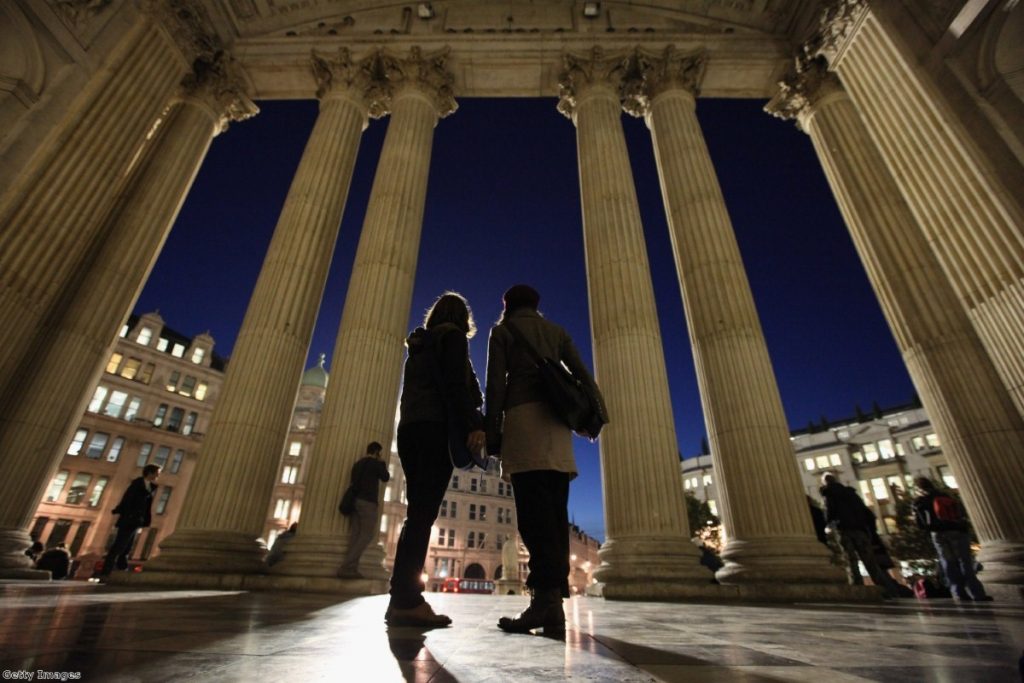St Paul’s demonstrators offer a masterclass in protest
With a moderate, focused set of demands, the St Paul's protesters have offered a stinging rebuke to their detractors.
The documents voted through on Monday night demand that the City of London Corporation open itself up to freedom of information requests, publish retrospective accounts back to 2008 and reveal its financial involvements.
The protesters have created a media-friendly spectacle which gained them publicity, proposed reasonable demands which would chime with public sentiment and approached their grievances in a practical, gradualist manner. That they are capable of releasing such demands – rather than something general and absurd like 'the end of poverty' – is just another slap-down to their opponents, who have had a tough time of it recently.
People who are used to attacking demonstrations without consequence have suddenly found themselves isolated. The cynical, child-like accusation that by drinking coffee the protesters had disqualified their criticism of the financial system was enjoyably mocked on Have I Got News For You, when Louise Mensche tried it on, and then on Question Time (time – 19:30), when Theresa May gave it a shot.


It was particularly noteworthy to see her confused expression when she came under attack. Usually, you get to attack these things and earn wide support. In actual fact, the strained, bewildered smile she pulled was probably the highlight of my week, but I'm damaged like that. It's the kind of thing I stay in for at the weekend.
The press did its usual cynical game, pretending they were going home at night, in the same way they lied about a Tamil hunger striker eating a Big Mac. Presented with idealism, the press bares its cynicism. That attack also failed to gain traction, another symptom of the generally beneficial effects of the phone-hacking scandal.
The absurd argument that the protesters were illegitimate because they had no positive proposals, just opposition, failed to resonate. It’s absurd to apply a standard to demonstrators which is not imposed on the official opposition in parliament. No-one considered David Cameron illegitimate, even though he had no policies for five years. The same applies to Ed Miliband now. Opposition unites people, but proposals divide them. That's why mainstream politicians avoid them until as late as possible and why popular movements struggle with them. This is an entirely uninteresting fact.
Yesterday, Cameron was so lost for effective attacks against Occupy London that he was forced to attack the tent city for not "standing up" when protesting, as if bodily posture was now the official definition of valid politics. While the prime minister made this teenage distinction, the apparently feckless students and naive idealists in the camp were constructing a reasonable set of demands against an unchecked power block squatting in the heart of our capital. So who is the most mature now?
The truth is, many people intrinsically hate protest. They think it's messy and disorderly – which it is. There are others who don't mind protest, but believe it changes nothing. Both groups are wrong.
Protest is innately worthwhile, and indeed, a fundamental aspect of living in a free society. I don't mean that in the tired 'right to protest' sort of way, I mean it more personally. You are under no obligation to join them, but protesters are the guardians of the free world, not its irritants. By their actions, they keep the blood flowing in the body politic.
On a day when the Met has gone out of its way to discourage protest – issuing threatening letters to people without criminal records and cynically bringing up the possibility of rubber bullets – the demands of the St Paul's group have reaffirmed it. Let's hope we can still be so confident tonight, when the anti-fees demo winds down.
Either way, I'll be reporting from the demo from mid-afternoon, after PMQs. Follow me on Twitter to keep up with news from the ground.

